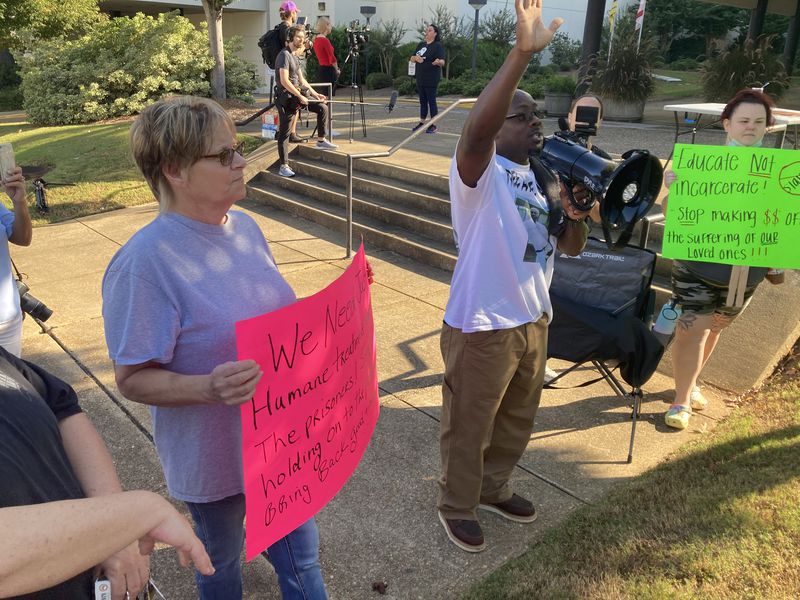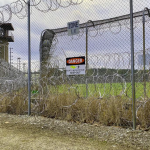The Alabama prison strike has entered its second week as inmates continue to protest the state’s parole and sentencing laws and living conditions inside facilities.
On Sept. 26, inmates in all Alabama Department of Corrections prisons stopped working. Inmates normally do the work in food service, laundry, and other tasks that keep prisons running.
Alabama is one of only seven states including Arkansas, Florida, Georgia, Mississippi, South Carolina, and Texas that do not pay inmates for labor.
Shannon Barlow, an inmate at Limestone Correctional Facility told WBHM “there’s no hope, there’s no promise of a future, and we’re the ones basically who have been holding the ceiling up over our own heads all these years and we’re just waking up to the fact that this is wrong.”
According to WVTM, specific asks from the strikers include the immediate repeal of Alabama’s habitual offender law, a repeal of the state’s drive by shooting statute, mandatory parole criteria that guarantees parole for all eligible inmates and ending life without parole sentences.
Last week, Gov. Ivey called the demands unreasonable, and said she hopes her plan to create two new “mega prisons” using COVID relief funds will help address some of the inmates’ needs.
“No. 1, our goal is for public safety, pure and simple. And the demands that they’re giving are just unreasonable, and would probably require whole other legislation, cannot just be mandated unilaterally…we still got our two prisons being built so we can better provide for the safety of the inmates as well as the workers.”
Meanwhile, inmates say corrections workers and officials are taking retaliatory measures against them, including reducing the amount of food they receive from three meals a day to two and canceling weekend visits “due to these stoppages and the impact on staff resources.”
In an interview with AL.com, Diyawn Caldwell, founder of the advocacy group Both Sides of the Wall and a strike organizer, said she believes canceling visitation will increase tensions.
“I think canceling visitation will only compound the frustration inside,” Caldwell said in an email.
“These men/women look forward to seeing their family. This is the only contact they physically have with them and this is why a lot of them stay out of any trouble. Many families have taken off work, paid for travel and hotels in preparation of visitation this weekend and they abruptly cancel it because they want to punish the men/women inside for exercising our 1st amendment rights.
“They are doing exactly what they have been doing for so long, which is trying to maintain control through loss of privileges for no misconduct, retaliation and fear.”
The Department of Justice sued Alabama in December 2020, alleging the failure to protect prisoners from inmate-on-inmate violence and sexual abuse, failure to protect them from excessive force by staff, and failure to provide safe conditions of confinement violate constitutional prohibitions on cruel and unusual punishment.
The DOJ first made most of the allegations in April 2019 and said at the time of the lawsuit that Alabama had failed to address problems. However, a trial in the case is not expected until 2024.











